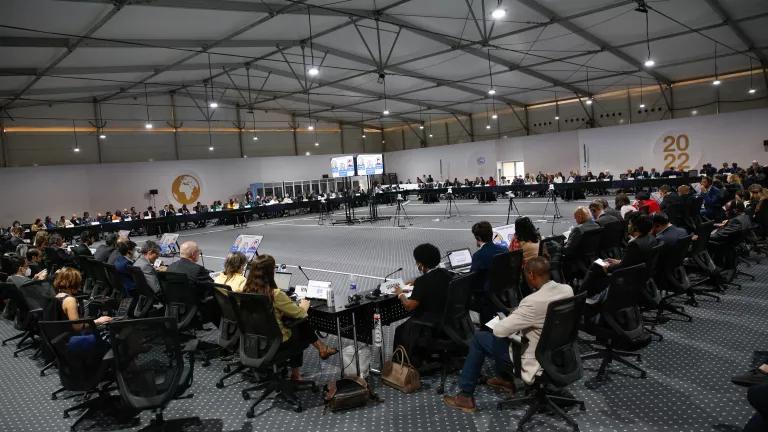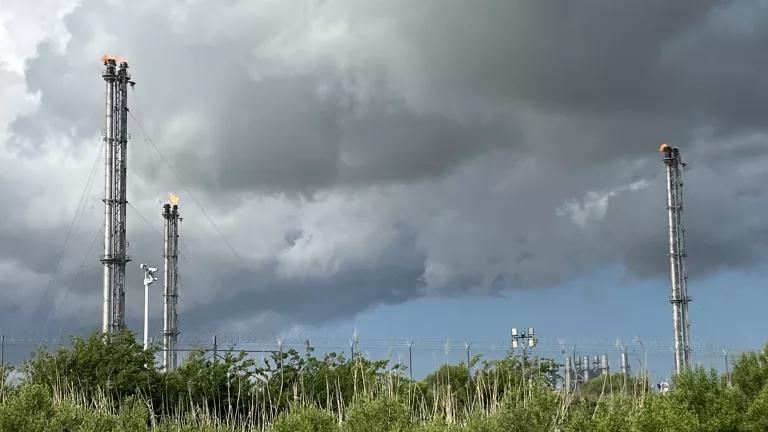This post was written by Harald Winkler of the Energy Research Center at the University of Cape Town.
South African Finance Minister Pravin Gordhan’s budget speech for 2013 suggests that the carbon tax proposal has been deferred. It has not been dropped, but a definite date has been set for 1 January 2015. It appears that the intention is firmer to price carbon in South Africa as the Minister appears to be pushing ahead.
Last year, the Minister proposed a similar tax for the 2013/14 financial year, this year he indicates it should come into effect on 1 January 2015 – a more precise date. The Minister has also given his department, Treasury, a deadline to release an “updated carbon tax policy paper” – something mooted last year, but not published.
The carbon tax remains at the same level as proposed last year, $13 per ton CO2 equivalent (South African Rand 120 per ton). A bit more detail is given the Budget Review chapter 4 that deals with tax proposals. The overall aim is to align the carbon tax, energy-efficiency savings tax incentives and the electricity levy. The carbon tax is to be phased in, rising at 10% per year, while the electricity levy is phased out.
As before, there are thresholds that effectively lower the tax rate by 60 percent as a portion of each sector’s carbon pollution will be excluded from the price. Energy-intensive and trade-exposed (EITE) sectors—such as cement, iron & steel, and aluminum— are still at the basic rate of 60 percent excluded from pricing. It seems that ideas for better-designed thresholds, related to sector-average baseline for emissions and electricity as well as production, have not been incorporated. In the process of commenting on the detailed design, it is hoped that these can be improved. Some revenues from the carbon tax are to be used to help these sectors increase their energy efficiency, through the “energy-efficiency savings tax incentive”. The other important area for recycling revenue is to ensure energy prices for poor households do not rise. This feature is understood to be part of the tax design, but was mentioned more prominently last year than in 2013.
The intention seems firmer to price carbon. The carbon tax is listed a second time in Minister Gordhan’s speech as one of the “main tax proposals for 2013”, although it indicates that this particular tax will happen in 2015. This gives some hints that this is one of the Minister’s top tax reform proposals for 2013.
Additional emissions reduction programs are also outlined. The speech also places the carbon tax in the context of a more substantial section on “low carbon economy”. So the carbon tax is combined with fuel standards; spending on solar water heater, renewable energy, low carbon public transport, and other environmental goods; and finally, South Africa’s Green Fund, which is increased by $32 million (R300) – for a total of $111 million (R1100 million). The latter amount is substantial, but still a tiny fraction of investment in electricity supply, coal haulage to Richards Bay or other parts of the infrastructure program.
There are also other tax incentive proposals to spur emissions reductions. The Minister also outlined a proposal to phase out the electricity levy on non-renewable sources of electricity which is $0.004/kWh (R 3.5c/kWh). This in effect will broaden the carbon tax to other sectors.
Minister Gordhan also proposed to increase levies and taxes that will encourage cleaner transport and lighting. Noting that the existing levy of $8 (R70) for every gram of GHG emissions above 120 grams CO2 per km has been correlated with decreasing average CO2 rates – the levy is increased to $10 (R90). And for double cab vehicles (pick-up vehicles with larger front cabs and higher fuel consumption), the increase is from $11-14 (R100-125) but their threshold is higher at 175 gCO2 / km. The levy on incandescent light bulbs goes up from $0.33 (R3) to $0.44 (R4) per bulb on 1 April 2013.
These are positive signs that South Africa will take steps to reduce its greenhouse gas emissions as it seeks to meet its target outlined in Copenhagen. Hopefully the carbon tax will come in 2015 as Minister Gordhan outlined.
------------
Harald is a the Group leader: Energy, Environment & Climate Change, at the Energy Research Center (ERC) at the University of Cape Town, South Africa. This post is a variation of his post on the ERC site.




